With the economy in the dumps as it has been in recent years, more people than ever before are waking up and wanting to get prepared for the worst, but limited funds can be quite a constraining factor. If you’re trying to get prepared on a budget, then this article is for you.
With tips and recommendations, we’ll go over how to prioritize your limited budget and some great ways to get the most out of your hard-earned money.
To begin, let’s prioritize the survival essentials:
1) Food and water: you can’t live without them, so food and water come first on your list. You can save money by stocking your larder one item at a time. This week, pick up a few cans of corn and stick ‘em into your pantry for safekeeping. Next week, some apple sauce or corned beef in a tin, then after that some beans or a few more cans of corn, so on and so forth.
2) Fire is an absolute necessity for survival, and luckily it is pretty cheap to acquire, too. Start by grabbing a few Bic lighters from the grocery store next time you’re running errands, then add a few booklets of matches or a tube of waterproof matches. When you’ve got a little extra money, invest in a ferrorod (magnesium fire-starter) or two and you’ll be all set.
3) Your first aid kit is probably the next most important thing to have on hand for an emergency situation, although hopefully you’ll never actually need it. If you’re on a tight budget, seriously consider putting together your own first aid kit rather than buying a premade kit. Not only will you save money by building your own kit one item at a time, but you’ll also know precisely what you put in it as a result; guesswork be gone!
4) Shelter: this can be something as simple as a tarp that you’ll tie up with paracord, or it can be a small tent. Small, light-weight tents are generally quite affordable, although the quality of the cheapest tents may not be so great. When possible, do your research and save up a bit of extra money if necessary to get a higher quality item; in the long-term it will serve you better than if you save a few dollars but get an inferior product.
5) Your bug out bag (BOB) – okay, this is a bit of a cop-out because your BOB should have quite a few items in it, including some of your food and water, your first aid kit and your tarp or light-weight tent for shelter. Once you have the first four survival essentials taken care of, you can start building your BOB. Take your time with this piece of survival equipment; buy the items you need one at a time and opt for higher-quality whenever possible.
For those who really need to get the most for their hard-earned money, here are 5 great tips for finding quality survival gear at cut-rate prices:
1) Shop during fall sales; after the summer has ended and students have returned to school, usually sometime in September or October depending on your region, sporting goods and hunting stores tend to mark down a lot of their camping inventory. Since a lot of the basic camping gear (ultra-light tents, camping mess kits, portable lights, walkie-talkies and more) is the same gear you need for bugging out or surviving in the wilderness, you can take advantage of these sales and save a bundle of money gearing up.
2) Price match, compare and shop online as much as possible. Shopping online not only gives you a huge variety of merchants to choose between, but you can also find surprisingly good deals, usually no sales tax and often even lower rates than you would’ve paid in store.
3) Check out the classified ads and sites like craigslist and eBay where people often unload their belongings for far less than they originally paid. Your local craigslist is a great resource for this, actually, since many people give things away or ask only a few dollars for them, including tents, blankets, flashlights, sleeping bags and other gear you can use for survival.
4) Thrift and second-hand stores, particularly those who support veterans like the Salvation Army, can present a treasure trove of discounted survival gear. Salvation Army is especially useful for military-grade survival gear, from sets of camo clothing and military-issue jack boots to knives for hunting and self-defense, Salvation Army had got tons of useful stuff.
5) Contact and network with local militia groups, veteran groups, and/or prepper outdoorsman groups. These groups generally have friendly members who are willing to share their time, knowledge and resources to help you learn and further yourself with regard to your mutual goals. Aside from the wealth of knowledge and information that such groups often share, you can get hands-on experience and training among such people and oftentimes other members will go out of their way to help you obtain the basic survival gear necessary for an emergency.
Finally, when you are budgeting and prioritizing materials and gear to purchase, remember that you are purchasing emergency survival gear. There’s a good chance that someone your life will depend on the quality of that survival gear, so do yourself a favor and invest in higher quality tools and gear whenever possible; you’ll thank yourself if that day ever comes.
This article has been written by Bill White for Survivopedia.
© Survivopedia.com



































































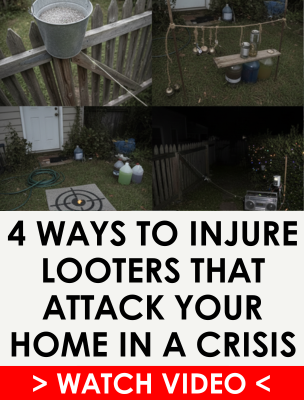
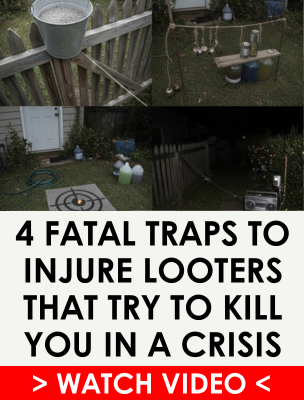
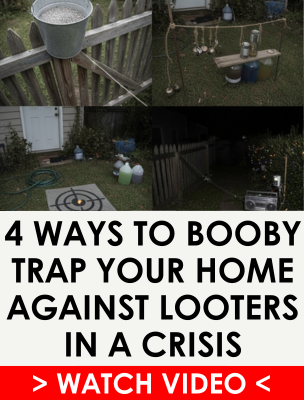


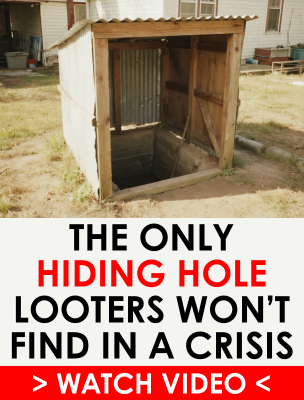











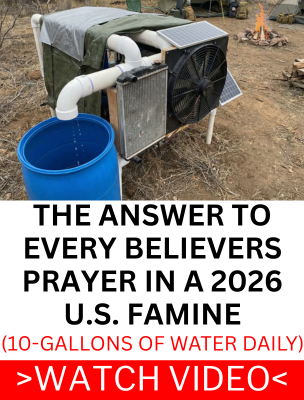

We own a commercial location in Red Bluff California at which we rent uhaul equipment, sell antiques and second hand goods. I would appreciate your help in finding the best wholesaler for us to purchase wholesale goods along the line of survival equipment? Any info would be greatly appreciated.
Thanks,
Steve Wilkinson, Manager
Liquisafe Limited Liability Company
can’t help with that, but you might have some luck with the good folks from Ready Nutrition, they’re experts in this kind of stuff.
http://readynutrition.com/contact/
While I wouldn’t stock up on MREs, there are many foods that are very tasty and nutritious that we already eat on a regular basis that keep for long periods of time (as long as rodents can’t get to them). They are dried raisins, Craisins, prunes, apricots, dates, and others. We have stocked up on these (and other items), setting up a rotation system by date so as to maintain a fresh supply. And if we ever manage to get rid of our bozo-in-chief, they are never going to waste.
When my children were home and… still children, they each had a special back pack that they would keep items in and I would have them check it often. They each had a clean set of clothes, an extra pair of shoes, toothbrush, toothpaste, bandaides, alcohol wipes, 2 bottles of water, pen and paper, rain poncho, closests relatives address ad phone number and a special something they wanted to take with in case of an emergency. They had to be able to carry their back pack. Gloves, boots, coats and scarves were always together. None of them ever came asking where their mittens were. This preparedness I practiced with my children paid off twice. The first was a house fire. The second was the collapssing of a refridgerated warehouse due to a snow blizzard. The kind of BOB you are talking about is way more advanced then a clean pair of underware. I have started my own list of what I would put in my BOB. Could you post a list of items YOU would put in a BOB? Please.
These emails are encouraging and offer hope and confidence. I really appreciate the simple straight forward advice they offer. I am going to up my water supply first and revamp my bug out bag. Thanks. I love these down to earth emails. keep them coming.
Great basic article! I found that if you’re on a very strict budget and these days most everyone is that there are ways to save a lot of money building your food stores. Around where I live we have “bent and dent” stores. A lot of name brand food items as well as other stuff that are expensive in your local grocery store. I choose the Indian mre’s. they come in a foil pack and last forever. Most are all vegetarian. But I buy a can of chunk chicken and mix in with it. One mre can feed 4 people when made into a soup. I pay usually .39-.49 cents for the mre’s. most time they will have 20-30 of these when I go in. So for $20 I can put quiet a bit into my reserves. If you’re packing away food reserves there is an easy way to do it where it will last for a good long time. Even canned stuff.
1) get a 5 gal bucket from Home Depot or your local hardware store. Around here most folks will give them to you out of their yard. Get the sealable lid too. They cost .98 cents. They have a rubber seal in the top.
2) get you some good garbage bags .3-.5 mil spec. Dollar general is usually the best place to buy them. The bent and dent keeps these also for around .89 cents for 20-40 count.
3) any canned items tear off the labels. This prevents mold crom growing as paper is a good mold inhibitor. Use black marker to write on top of can of what it is. Take a rag and use vegetable oil and wipe the cans down applying a thin layer to it. This takes away moisture and it won’t rust. Put it into at least two of the garbage bags and tie it up. Put the sealable lid on it and you’re done.
This is a very efficient way of storing canned goods. Most people think that because of the expiration date if it goes past that its bad. NOT TRUE. I did haz-mat work and worked in many food factories that produced canned items. Some of these have been in a warehouse for several years. When a grocery store needs 10k cans of green beans they pull it out of the environment controlled warehouse and apply their label to it then it hits the shelfs. Use common sense and good judgement storing canned items. I have had some buried for 5 years and pulled one last summer opened a can of chicken and it was still good. As long as the cans don’t have any major dents in them they should be fine. Ramen noodles last long packed this way in your buckets too. This has worked well for me and others I know very well. Good luck!
Good info and ideas. I would also recommend that you try things out and get comfortable with them before you actually need them. If you find you have something that doesn’t work, replace it while you still have time.
Didn’t reallly get much out of this episode. It was just very basic. I just bought
a couple of “movers blankets” 4’X6′ for about only $4 each & they can be used
for about anything. Wrap them around a lt s-bag, & you’ll probably sweat!!! They had flint starters for about $2.50!! All this was at that Harbor Tools chain. You can go nuts there.
Don’t forget a really good knife! Full tang, heavy enough to use as a hand-axe or hatchet, at least 5mm thick on the back of the blade so that it can be struck with a rock or hammer, 6″ to 11″ blade (generally 10″ to 15″ overall length), heavy butt-cap to be used as a hammer if needed. Large Bowie knives are good, Modern military bayonet designs (M4), medium size Khukri design is good, too. Avoid most machetes, as they are not heavy enough, and cannot be easily used for cooking or dressing of game.
Cost will be fairly high ($60 and up), but don’t go cheapo on this item. Ebay or Kennesaw Knives, or Smokey Mountain knife company are good sources. Your local military surplus store may be a good source, as well..
Never gave a good knife a thot. I am just starting out with this and then lost $880 from our monthly income so we hav to dig into my stash a bit. But I will be able to stuff it up again before too long, hopefully. But I will certainly be getting a knife. Thanks. If you can tell me about those metallic looking blankets/bags I would appreciate it.
I have just about everything I may need in case it hits the fan. I am now building my food supply with freeze dried meals. I also found a portable toilet seat, “luggable loo”, that snaps over a Home Depot 5 gal. Bucket. Picked up a privy shower kit and I’m ready to go. I was lucky enough to have camping/hiking gear. I have been looking at RV motor homes that could be tweaked to go off the grid if needed. I have a super first aid kit and I also put together a surgical kit, just in case. Do you think the RV is too much? I am schooled enough in camping , but I tend to buy too much. I have 3 bug out bags. I can scale down to the basic necessities, but there is so much out there to make your life easier. Any suggestions?
I don’t think the RV is too much. I bought one and fixed the inside with a fresh air filter and sealed the inside up. It was a self contained unit. Can run off a 12v battery fridge can use power 12v or propane. I have a spot off the grid not too far from home just in case. You have to think that your home won’t be safe and too much to guard. I think the RV is a good idea.
I forgot about some cans in the basement and they were corroded through. Was that because the acid of the tomato juice ate through? Or the humidity rusting the can from the outside?
Hi I am so excited I found your weblog, I really found you by error, while I was
browsing on Digg for something else, Nonetheless I am here now and would just like to
say thank you for a marvelous post and a all round exciting blog (I
also love the theme/design), I don’t have time to read it all at the minute but I have saved it and also added in your RSS feeds, so when I have time I will be back to read more, Please do keep up the superb work.